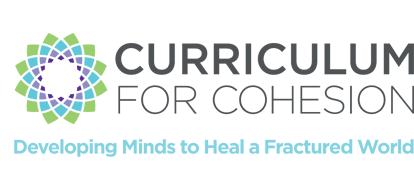

What, concretely, are we producing?
Our tested, philosophical ideas in the fields of education and law are made concrete and useful to researchers, practitioners and opinion-formers in three main ways.
- Academic publications and researcher development
- Professional training of teachers, judges, prison officers and journalists
- Policy advice.
1. Academic publications and intellectual development.
The academic and philosophical rigour of our ideas is the platform of all our work. We make full use of the academic peer-review process to develop and test our ideas before they reach the public domain more widely through our teacher-training, our judicial training and our policy work. Please click here to access our publications.
Our academic work also involves the writing of full-scale books to inform the practice of researchers and professionals:
- A Fresh Look at Islam in a Multi-faith World: a philosophy for success through education (Routledge, 2015).
This book outlines the complete philosophy of Islamic Critical Realism and shows how History, Religious Education and Citizenship teachers can use it to help their students understand the relationship of Islam and Muslims to a multi-faith society deeply, peacefully and transformatively. - The Genealogy of Terror: how to distinguish between Islam, Islamism and Violent Extremism (Routledge, due 2017). This book is being written for the Routledge Religion & Law series edited by Professor John Doe of the University of Cardiff. This book addresses two pressing issues:
- First, practically, how can legal and other professionals, with little or no background in Islamic thought, who have dealings with young Muslims, distinguish fairly and authentically between ideas and phenomena which all have an Islamic complexion and yet are philosophically, theologically and legally different, in order both to protect the rights of religious citizens, offer sound professional advice and, when necessary, to bring criminals to justice?
- Second, more theoretically, what are the legal-philosophical implications of bringing to justice Muslims who claim not to accept the grounds of justice in non-Muslim courts.
As well as academic publications, we disseminate our ideas through academic conferences and seminars, of which we attend at least four carefully selected ones each year, and workshops for researchers into Islam and Muslims which we have given at SOAS, the University of Cardiff and the UCL Institute of Education.
2. Professional training
Our ideas work directly to improve the practice of professionals and their impact on the lives of young people through face-to-face training.
Every year, we run:
- at least six teacher-training workshops for History and Religious Education teacher-trainees at the University of Oxford, UCL Institute of Education and SOAS, University of London and the University of Cambridge;
- at least two judicial events for senior judges
- at least two training events for senior media professionals.
Our History education workshops show teachers how an inclusive historical provision will also be more accurate, true to the discipline of History and interesting for all types of children.
Our Religious Education workshops suggest how the philosophy of critical realism can be applied to create an RE provision that allows pupils to reflect on, justify, critique and articulate the beliefs and values of their own faith traditions whilst remaining open to the wisdom of those of other faiths and none.
Our Judicial workshops examine cases of Serious Crime and procedural issues in court that appear to be Islam-related and interrogate the relationship between the principles of Islamic shari’a and those of English Common Law.
Our Media workshops show how journalists can make the presentation of Islam in the media more balanced, accurate and useful.
3. Policy advice
On occasion, it is necessary for ideas to effect change and transformation in the world on a macro-scale through the mechanisms of national policy-making.
Our three reports to the National Curriculum Review for History (2011-2012) were instrumental in articulating the strong case for the inclusion of elements of the Muslim contribution to the progress of humanity in the National Curriculum. After hard political work, many of these recommendations were included in the new specification of the National Curriculum for History for the benefit of all children in English schools.